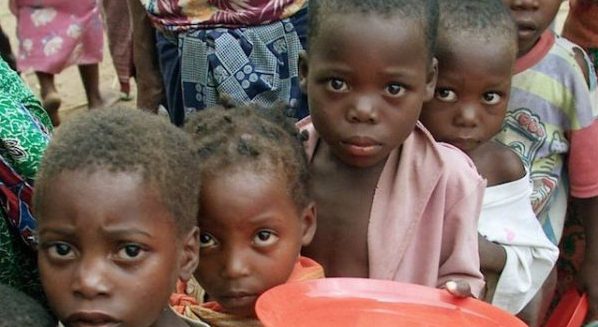Politics
51% Nigerian children engage in child labour —NBS

A survey by the National Bureau of Statistics (NBS) has shown that about 50.8 per cent of Nigerian children, between ages five and 17, are involved in child labour.
The 2017 Multiple Indicator Cluster Survey (MICS), was carried out by NBS in conjunction with other partners like the National Primary Health Care Development Agency (NPHCDA) and the United Nations Children Fund (UNICEF).
By child labour, it means children engaging in works that are mentally, physically, socially or morally dangerous and harmful to them and deprive them the opportunities for schooling and development.
Regretting the development, UNICEF’s Monitoring and Evaluation Specialist, Mrs. Maureen Zubie-Okolo, said during an interview with journalists in Abuja on Tuesday that the figure was alarming and worrisome in spite of all legislation.
In her analysis of the survey, Zubie-Okolo noted that North-Central region has the highest burden of child labour of 56.8 per cent followed by North-West accounting for 55.1 per cent. South- South has 48.7 per cent; South-East 46.6 per cent, and South-West 38 per cent, respectively.
She further lamented the number of children working in hazardous conditions in the country and identified North Central as accounting for the highest number with 49.6 per cent. The UNICEF official also identified North West as accounting for 41.9 per cent of children working in hard conditions, followed by South-South 37.9 per cent; South- East 36.1 per cent; North-East 34.1 per cent and South-West 25.4 per cent in that order.
According to Zubie-Okolo, the major causes of child labour are poverty, rapid urbanisation, breakdown in extended family affiliations, rate of high school drop-out and lack of enforcement of legal instruments meant to protect children.
Identifying the use of children as child domestics as one of the most common practices of child labour, Zubie-Okolo state’s that the 2017 MIC survey is fifth in the series.
She explained that the survey helps to espouse the country’s progress and lapses in key areas of development, among others. According to her, it provides opportunity for strengthening national statistical capacity, by providing technical guidance on data gathering.
She further noted that the survey provided statistics to complement and assess the quality of data from recent national surveys such as National Demographic and Health Survey (NDHS) and Nigerian General Household Panel Survey (NGHPS) conducted by the National Population Commission (NPopC).
READ ALSO: What I’ll tell Buhari if I meet him –Soyinka
She said, “The high level of diverse and tedious jobs that children execute in dangerous circumstances is particularly worrying. “These jobs include being street vendors, beggars, car washers or watchers and shoe shiners.
“Others work as apprentice mechanics, hairdressers and bus conductors, while a large number work as domestic servants and farm hands. Traditionally, children have worked with their families, but today children are forced to work for their own and their family’s survival.
“The money earned by child family members has become a significant part of poor families’ income. These children who work suffer from fatigue, irregular attendance at school, lack of comprehension and motivation, improper socialisation, exposure to risk of sexual abuse, high likelihood of being involved in crime.
“These children who are mostly young girls, should be in school but instead, they are in the market hawking food items because their families need the extra income.”
Zubie-Okolo, then called on the Federal Government to urgently enforce laws on child labour in order to stem the tide and further reduce the burden.
RipplesNigeria… without borders, without fears
Click here to join the Ripples Nigeria WhatsApp group for latest updates.
Join the conversation
Support Ripples Nigeria, hold up solutions journalism
Balanced, fearless journalism driven by data comes at huge financial costs.
As a media platform, we hold leadership accountable and will not trade the right to press freedom and free speech for a piece of cake.
If you like what we do, and are ready to uphold solutions journalism, kindly donate to the Ripples Nigeria cause.
Your support would help to ensure that citizens and institutions continue to have free access to credible and reliable information for societal development.






















